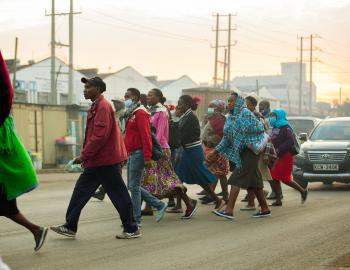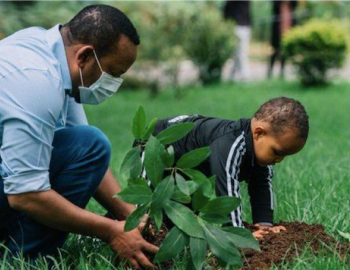WORKING PAPER: Learning organisations - emerging practice from CDKN’s experience
WORKING PAPER: Learning organisations - emerging practice from CDKN’s experience
This paper aims to help organisations prioritise learning by highlighting six useful models and frameworks. Drawing on the rich experience of the Climate and Development Knowledge Network (CDKN), it explores how these models and frameworks have been applied in practice, and what this might mean for other development practitioners faced with similar tasks and also for those engaged in areas other than climate change and development.
Climate change - learning how to tackle a complex problem
Integrating climate challenges into development action is complex. The causes and impacts of integration challenges are not single, straightforward or linear; they are interconnected, cross-sectoral, multi-stakeholder and rarely predictable. When tackling such complex challenges, practitioners can rarely rely on past experience and best practice; getting into action quickly and building a culture of learning are most important for organisations that need to make progress with climate integration.
To respond to these challenges, ‘becoming a learning organisation’ has become an ambition for many actors operating in the international development and climate change context over the past two decades. This Working Paper highlights useful models and frameworks that can help organisations progress this ambition. CDKN contributes first-hand experience of applying these models in practice.
For CDKN, learning has taken place in many forms, for different purposes and by different actors. As a knowledge network, CDKN continuously generates and amplifies emerging practices, new insights and cutting-edge knowledge from its work across Asia, Africa and Latin America. CDKN has facilitated learning for others through applied research, demand-driven technical assistance and tailored communications/public relations. On an organisational level, CDKN has been increasingly systematic in articulating its priority learning questions and mobilising internal resources to capture emerging insights.
What this paper offers
While CDKN has been a multi-project programme composed of staff from five alliance member organisations, it has often performed as an organisation. This Working Paper offers a starting point for thinking about organisational learning, and raises key questions and decisions for embedding learning more deeply in organisations.
This Working Paper was written by Juliane Nier, Rachel Phillips and Russell Cook at Edge Effects. The Edge Effects team has been supporting CDKN since 2012 by designing and managing the implementation of the CDKN learning programme.



